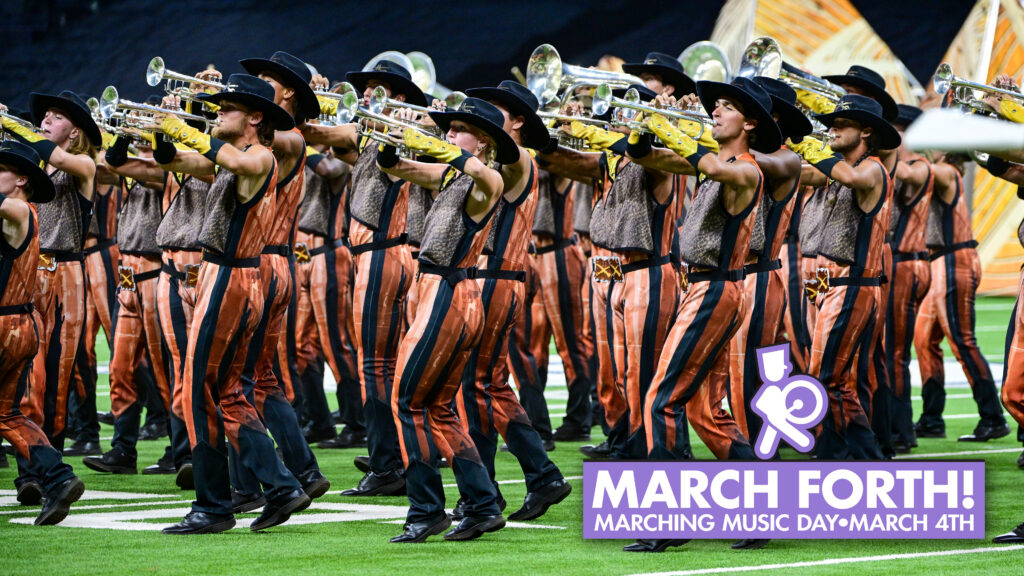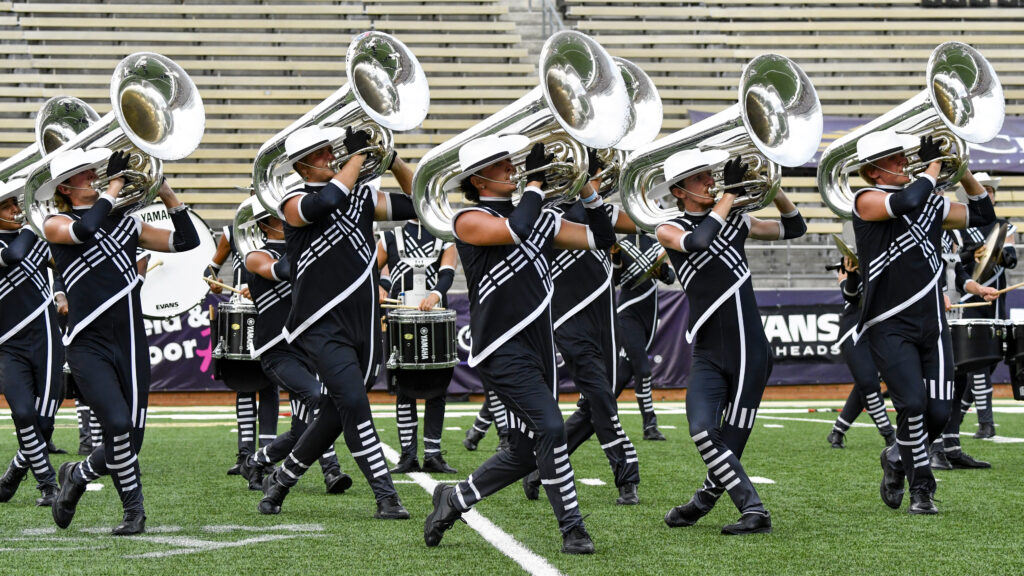In 1984, Spirit of Atlanta was still very much regarded as Drum Corps International’s “Southern Corps.”
The group performed several seasons of music reflecting the corps’ heritage, but even when the corps wasn’t playing Southern-tinged music, the general attitude conveyed was very much down home and sultry.
“We’ve been pleased with our improvements and the way we’ve established our personality,” Spirit of Atlanta founder Freddy Martin said in 1984. “As a southern corps, we like to uphold some of our musical traditions, and with the refinement in the staging of our horns not only are we our own personality visually, but we are ourselves musically again as well.”

Improvement in the corps’ visual element is one that Martin credited as a major change for the corps in 1984. During a period of transition and innovation in Drum Corps International history, the corps’ staff featured two future DCI Hall of Fame members including second-year visual coordinator Sal Salas who handled drill writing and color guard design duties and Scott Chandler who helped infuse elements of modern dance into the section.
“Scott is the finest dance man in drum corps, and Sal’s drill ideas are still fluid and very much his own,” Martin said. “So as a result, our color guard has really come along.”
Spirit’s sixth-place 1984 show was largely based on George Gershwin’s popular folk opera, “Porgy and Bess.” The work was premiered in Boston in 1935 and enjoyed a successful run on Broadway and on the road, but it took decades for American opera companies to accept it as a legitimate opera. The New York Metropolitan Opera didn’t present it until 1985, the year after Spirit of Atlanta put it on the field.

The grandiose opening of “Bess, You Is My Woman” wasted no time in introducing the pairing of the male and female color guard members, a theme that would build throughout the show.
“There’s a Boat Dat’s Leavin’ Soon for New York” demonstrated the corps’ jazz roots. That segued into the soulful “It Ain’t Necessarily So” before returning to a Broadway-ized “There’s a Boat…” to wrap up the opener.
A squealing soprano bugle seemed to be holding on well past the cut-off, but it was simply introducing the pop standard, “Blues in the Night” (written for the 1941 movie of the same name), a definitive Spirit of Atlanta production. Growling and sweltering, the piece was very much in the character of what one had come to expect from the corps in previous years.

Not so much expected was the drum feature “No One Together,” by the rock band Kansas. The brass section wailed as the entire work headed back into a recap of “Blues in the Night.” Somehow, jumping back and forth between decades within a single piece worked.
“I Loves You, Porgy” and “Bess, You Is My Woman Now” from the folk opera was accompanied by a rack of 21 hand bells that sat in the modestly-sized front ensemble. Just prior to the final push, the guard appeared to carry a banner over 40 yards long that was actually made up of individual flags.
The corps ended with a very brief closing statement of “It Ain’t Necessarily So.”
Spirit of Atlanta came into the 1984 DCI World Championships with a natural morale boost, as the corps had the opportunity to perform in front of a hometown crowd at Georgia Tech’s Grant Field in Atlanta.
“It’s a personal high for everybody in the corps, since it is our hometown,” drum major Steve Sorrel said. “It’s been a real thrill to go out there and watch as everybody cheers us on.”
Spirit’s final score of 93.10 at the DCI Finals marked an all-time high for the Atlanta corps. The corps’ sixth-place finish was its highest placement since 1980.
1984 Overview

Michael Boo was a member of the Cavaliers from 1975-1977. He wrote about the drum corps activity for more than 35 years while serving as a staff writer for various Drum Corps International projects. During his lifetime Boo wrote for numerous other publications including an honors-winning book on the history of figure skating. He also was an accomplished composer. Boo passed away in 2020 and was inducted into the DCI Hall of Fame posthumously in 2021.





